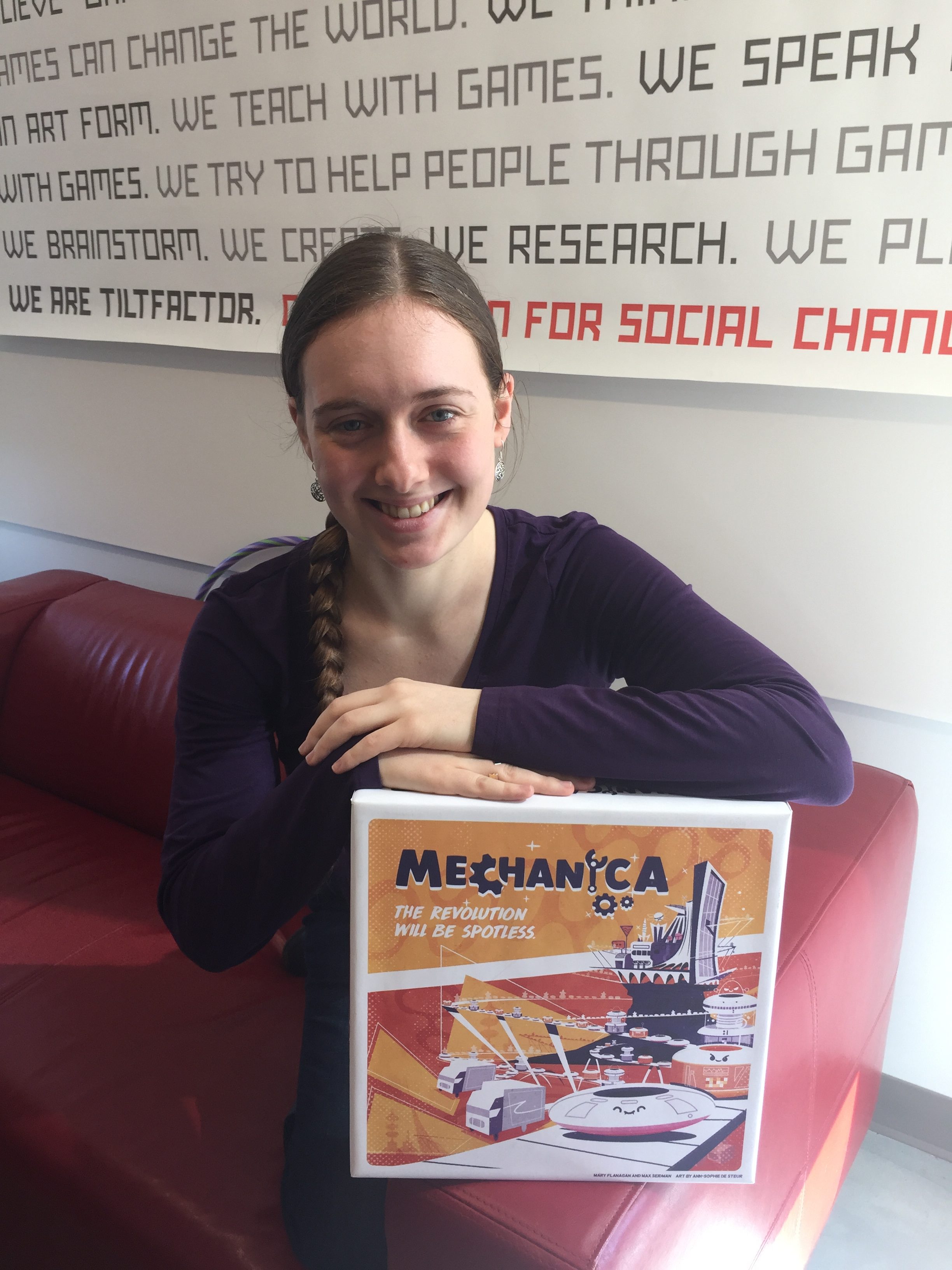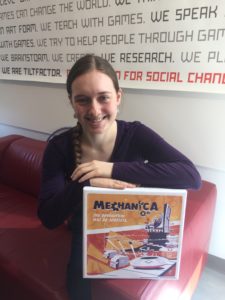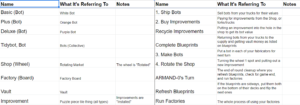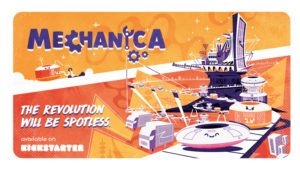
 Hi! I’m Emma, a designer and writer working on Mechanica, Resonym’s newest board game. It’s an hour-long engine-builder about creating the helpful robotic hand that will destroy us… I mean, that will destroy the, uh, messes we make. It’s been a challenging but thrilling process, and I’ve learned a LOT.
Hi! I’m Emma, a designer and writer working on Mechanica, Resonym’s newest board game. It’s an hour-long engine-builder about creating the helpful robotic hand that will destroy us… I mean, that will destroy the, uh, messes we make. It’s been a challenging but thrilling process, and I’ve learned a LOT.
Since I fancy myself the main “words-person” working on Mechanica, one of my biggest concerns throughout the process has been terminology. I’ve spent days compiling and standardizing all the keywords we use in the instructions, and if I type “th” into my searchbar, it autocompletes to “thesaurus.com.”
Clear, memorable terminology is important. It makes it easier for first-time players to absorb the rules, and helps resolve rules disputes between more experienced players. You want it to be short enough to fit on the page and simple enough to say without stumbling over the word, but distinctive enough that players won’t get into a “Who’s On First?” situation when trying to describe their moves.

We agonized over what word to use for the processors that you put in your factory to improve it. The original choice, “machines,” ended up being too confusing since “bots” are also machines, “upgrades” was too close to the specific piece “Upgrader,” and “pieces” was too abstract, since it had no relation to what the robots at Mechanica would actually call them. Eventually, we settled on “improvements,” which, at the end of the day, I’m satisfied with.
But I recognize that, to a large degree, what we call things doesn’t matter – players will usually find their own terms that work for them, and use those instead of the official terms that the rulebook pushes. For example, we can repeat the term “Deluxe Bot” as many times as we want, but at the end of the day, everyone playing the game is going to call them “Purples.” We’re as guilty of this as anyone else; in our office playtests, we see a purple piece and we call it as we see it.
Why, then, do we bother coming up with in-universe names at all, if we know that gamers are going to refer to our “workdays” as “rounds,” talk about our “TidyBot models” in terms of color, and say that they “do” rather than “complete” a Blueprint?

For one, good terminology is a real part of the narrative experience. Mechanica’s instructions contain a lot of flavor text – entertaining or interesting prose in game instructions that adds to the game’s narrative but doesn’t have any actual mechanical bearing on the game. Though we try to keep the flavor text bubbles separate from the rules, the more synergy we can achieve between the two, the more immersive the experience will be.
So, even though we know a lot of people will just call it a round, the fact that the official name is “workday” tells a story: every day you’re going to your factories and making decisions, and overnight your factories run and get bots ready for you to make decisions about come “tomorrow.”
But also, even if lots of people have the common board-gaming vocabulary to know to call a loop around the table where everyone takes a turn a “round,” not everyone does! Every experienced gamer once played their first game, and I think every game developer hopes that their game will be the introduction that gets a fledgling gamer into the hobby. By using immersive, in-world terminology, we make it a little more possible for that to happen with our game. Here’s hoping!
— Emma Hobday ![]()


